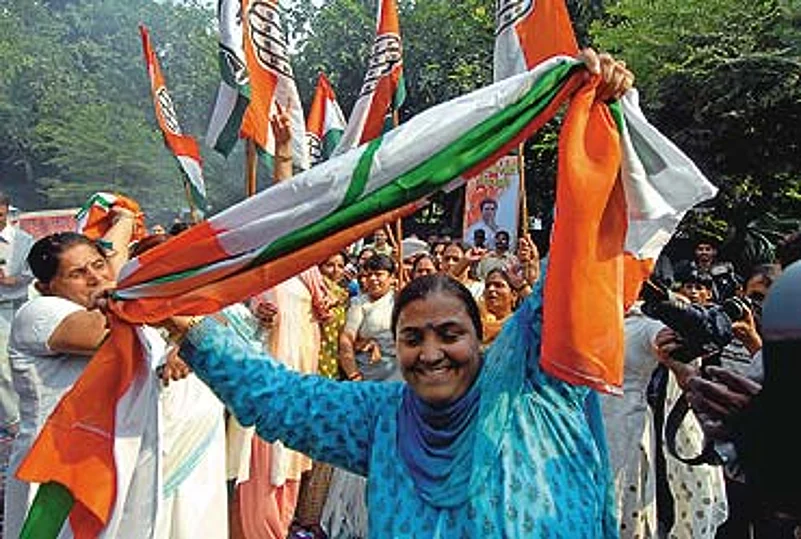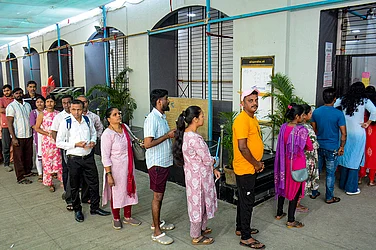
Taken together, the Congress moves indicate a new approach. Having battled against theBJP and communal politics on the one hand, and with regional/caste parties nibbling away at its base on the other, the party has apparently decided that innovation, rather than imitation, is the way ahead. "The party is seeking a new image and a new look to energise it," says Moily, who heads DEPCO and the newly constituted group to look into future challenges. "The Congress has always believed in class, not caste, politics—so we talk of backward classes, not backward castes. But because of competing caste and communal politics, the party's national outlook gets distorted. But our focus on the aam admi and anti-poverty programmes will help to cut through caste interests, raise political consciousness and bring our national approach back on the agenda."
The reorganisation of the party has seen the emergence of a slew of "think tank" committees—particularly the much-enlarged DEPCO and the one on future challenges. This would suggest, as Jairam puts it, "an attempt to balance the political and the intellectual and a recognition that there has to be an intellectual base for political activity." Party sources point out that the PM has long lamented the "intellectual bankruptcy" in the Congress, a result he believes of the long years of the party being in power and depending on civil servants to do its thinking.
But there are limits to trying to create a New Congress. A senior leader says, "Every time there is talk of reinventing the party, fears are expressed that this means a rejection of the party's legacy, of the ideals that won us freedom. But the fact is while many policies—such as non-alignment—served us well in the past, we're now living in a very different world. Take, for instance, the Indo-US nuclear deal and our growing closeness to the US. The party's backing it fully but there's fear of articulating it as being part of our new policy."
So, if Rahul's real challenge will be to help "reinvent" the Congress and "unlock the productivity of the youth"—as Deora puts it—it remains to be seen whether he can live up to the promise he made while campaigning for the UP elections earlier this year. "We lost the ability to create leaders at the ground level," he had said. "That will change now. You will see a difference in these elections, and a much bigger difference in 2009." Most political observers believe he made little difference in the 2007 UP elections, even though party leaders say the Congress would have fared even worse without his active campaigning.
Therefore, the question before the Congress today is: given the Gandhi name works better with the party faithful than with the voter, will Brand Gandhi work? For, as a newspaper edit put it, "...even the best family-owned brands push their products, not themselves, in the market. Congress itself has lost brand value even as the family brand has taken over." A new leadership, however inspirational, will not be enough: the Gandhis need to market not just themselves but the product they are selling, the Congress party.






















